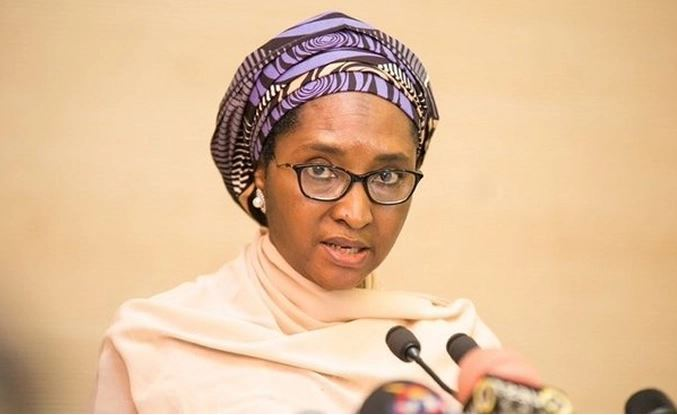Nigeria’s Eurobonds fell Thursday following a declaration by Minister of Finance Zainab Ahmed in a Wednesday video that the government would review and consider restructuring its portfolio of debt.
With the commitment to repay some local debts falling due in 2022 and the year ahead, refinancing, the government says, is the way to go, and it is setting sights on converting the N20 trillion it owes the Central Bank of Nigeria into bonds.
“For the larger portfolio of debt, we have just appointed a consultant,” Mrs Ahmed told Bloomberg TV.
The adviser will help the government in understanding the way to “get additional relief by way of restructuring and negotiating to stretch out the repayments to longer periods.”
Priced at 56.79 cents on the dollar in London at midday, bonds having 2047 as their expiry had fallen from Tuesday’s level of 58.37 cents. Those due in 2049 and 2051 dropped as well, according to Bloomberg data.
Nigeria offered half a dozen of its bonds at 1,000 basis points or more than U.S. Treasuries, a level often deemed to be distressed, Bloomberg index, which keeps tabs on government debt instruments from emerging markets showed.
The country is buckling under a grinding debt service burden, seen ballooning to more than double of revenues by the International Monetary Fund come this year’s end. President Buhari said at the presentation of the 2023 appropriation bill to the legislature last week that his government plans to borrow another N8.8 trillion next year.
That represents 81.6 per cent of the funding gap of Nigeria’s biggest ever budget deficit estimated at N20.5 trillion in all. Allocation for capital spending for next year is N5.35 trillion compared to N5.46 trillion this year.
Muda Yusuf, the chief executive of Centre for the Promotion of Private Enterprise, an advocacy group seeking increased private sector participation, said the country will improve if the government were able to execute half of the capital expenditure commitment.
Mr Yusuf, who last headed the Lagos Chamber of Commerce and Industry, the trade board of Nigeria’s main commercial hub Lagos, said that in light of the government’s reputation for hardly taking capex seriously.
Mrs Ahmed disclosed will look to explore the recently introduced Food Shock Window by the International Monetary Fund, a vehicle for members of the multilateral institution to access emergency financing instruments.
“Debt restructuring would be extremely helpful given the parlous state of public finances and an extremely high debt-servicing ratio,” Bloomberg quoted the head of intelligence at Lagos-based Stears Insight, Michael Famoroti, as saying.
“It would end up being a pure accounting exercise if it does not encourage additional fiscal discipline,” Mr Famoroti warned.
Among Nigeria’s numerous national challenges, which do you think the next president should focus on first?
— Premium Times (@PremiumTimesng) October 5, 2022
Support PREMIUM TIMES’ journalism of integrity and credibility
Good journalism costs a lot of money. Yet only good journalism can ensure the possibility of a good society, an accountable democracy, and a transparent government.
For continued free access to the best investigative journalism in the country we ask you to consider making a modest support to this noble endeavour.
By contributing to PREMIUM TIMES, you are helping to sustain a journalism of relevance and ensuring it remains free and available to all.
Donate
TEXT AD: Call Willie – +2348098788999
Stay connected with us on social media platform for instant update click here to join our Twitter, & Facebook
We are now on Telegram. Click here to join our channel (@TechiUpdate) and stay updated with the latest Technology headlines.
For all the latest Business News Click Here


